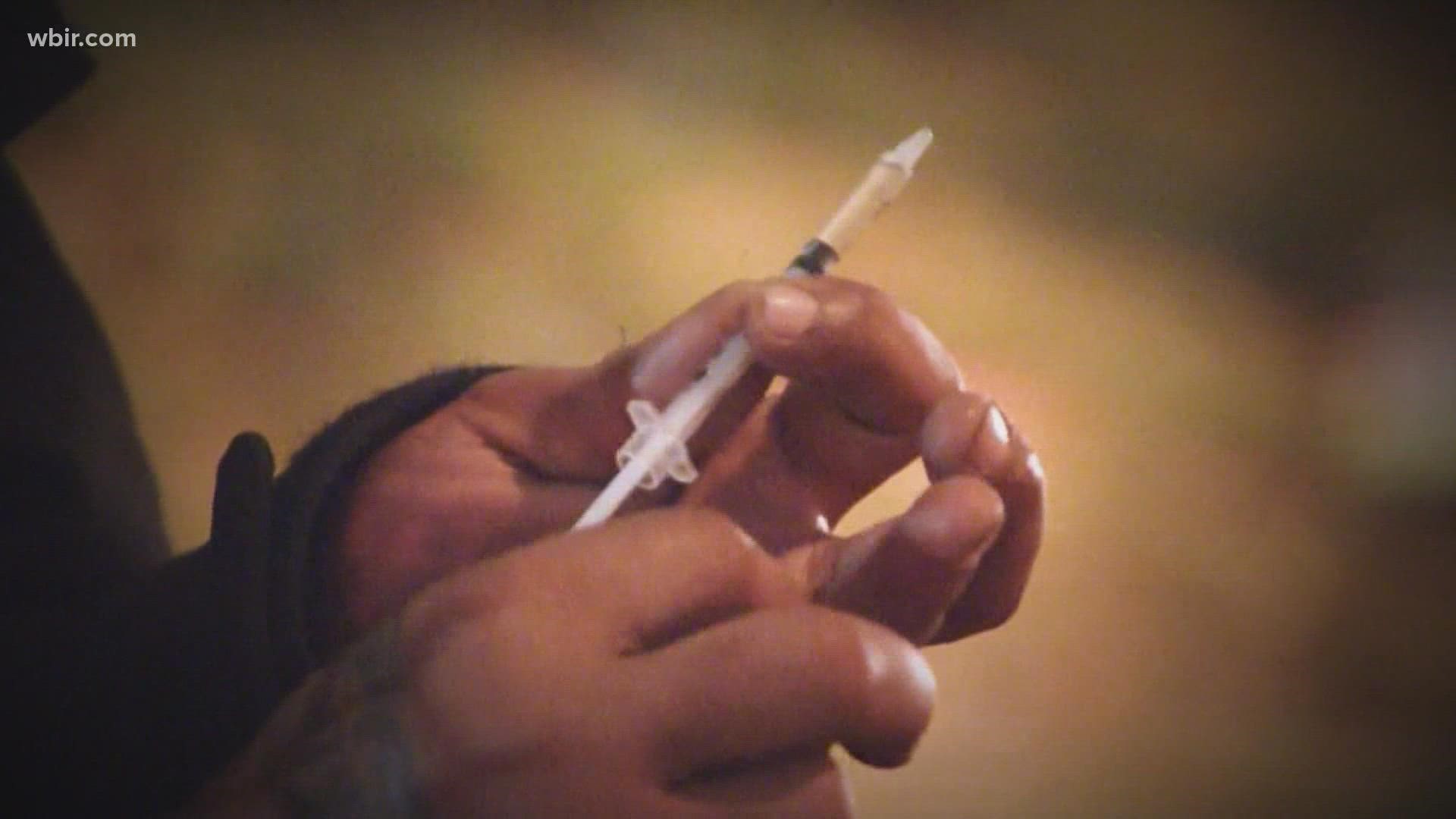NASHVILLE, Tenn. — The Tennessee Department of Mental Health and Substance Abuse Services is trying to set the record straight on fentanyl exposure with new state guidance to combat persistent myths, misunderstandings and misinformation.
The substance abuse services department and the Tennessee Department of Health issued new guidance this week to "separate fact from fiction" when it comes to touching fentanyl and other substances assumed to be fentanyl.
“It’s so important to separate fact from fiction when it comes to fentanyl because Tennesseans are dying of overdose by the thousands. It is our hope that these facts will help people who are struggling with opioid use reach to treatment if they need it and find a new life in recovery,” said Marie Williams, Tennessee's commissioner for mental health and substance abuse services.
It's likely you've seen at least one alarming video circulating on the news or social media in the past few years involving law enforcement officers or someone claiming they had adverse reactions after simply coming in contact with fentanyl.
Medical and substance abuse experts said the symptoms seen in those videos were not at all consistent with an overdose. The American College of Medical Toxicology and others said the severe reactions were more likely due to people having panic attacks due to ingrained misconceptions about the drug.
"While these stories are disturbing, it is important for everyone involved to separate fact from fiction when talking about fentanyl exposure to avoid unnecessary confusion and panic," Williams said. "Symptoms such as alertness, rapid heartbeat, hyperventilating, sweating, chills, numbness in fingers are not typically associated with opioid/fentanyl overdoses, though they may need medical attention. These symptoms are more commonly associated with anxiety or a panic attack."
People who handle fentanyl in the medical field on a regular basis said it is impossible to experience a drug overdose simply by touching it or being near it.
"Illicit fentanyl cannot be absorbed through the skin or by touching an item or surface where it is present. When in powder form, fentanyl and its analogs (including carfentanil and fluorofentanyl) cannot be absorbed through the skin," Williams said. "For a fentanyl overdose to occur, the powder must enter the bloodstream and get to the brain. This is why it is important to avoid touching your eyes, nose, or mouth until you can wash your hands. Fentanyl can also enter the bloodstream through cuts or wounds on the skin. Wounds must be open and visible to allow fentanyl to enter."
Some of the current misinformation surrounding fentanyl exposure initially came from early guidance from the federal government and others when the drug and its analogs were being linked to a new surge of opioid overdose deaths starting in the 2010s.
The Centers for Disease Control and Prevention, U.S. Drug Enforcement Administration, and other agencies used to warn first responders about the "significant danger" of coming in contact with fentanyl powder through the skin or accidental inhalation.
"Fentanyl poses a significant danger to public health workers, first responders, and law enforcement personnel that may unwittingly come into contact with it either by absorbing through the skin or accidental inhalation of airborne powder," the CDC's old guidance in 2015 said.
Government agencies are now actively combating that misinformation by correcting the guidance. In 2018, the DEA and other agencies created updated training videos and guidance for first responders addressing the myths surrounding exposure, but even then those myths persist.
Recently, a Kentucky woman's story went viral after she claimed she picked up a dollar bill laced with fentanyl and suffered an overdose. Experts at Vanderbilt University Medical Center said it was "really unlikely" she suffered an overdose based on her symptoms and level of exposure.
Tennessee health leaders said people exposed to any substances they believe could be fentanyl should simply wash their hands with soap and water. They warned people not to touch their eyes, nose or mouth until their hands are clean to avoid accidentally ingesting the substance.
People who begin to experience any adverse symptoms should seek medical help. The symptoms of an overdose include pinpoint pupils, falling asleep or losing consciousness, slow and shallow breathing, choking or gurgling sounds, a limp body and pale, blue or cold skin.
Illicit fentanyl remains the main driver of the overdose epidemic, which the DEA warns is largely related to the illegal sale of counterfeit pills that have fentanyl slipped into them. Many people who overdosed using these counterfeit pills unknowingly ingested fentanyl because they are being illegally sold and marketed as legitimate prescription pills such as Adderall, Xanax or oxycodone.
“Overdoses are heart-wrenching, for those who live through them and for the family and friends of those who don’t,” said TDH Commissioner Dr. Morgan McDonald. “We are taking every opportunity to provide care and information to those dealing with addiction to prevent deaths and overdoses from fentanyl and opioids.”

